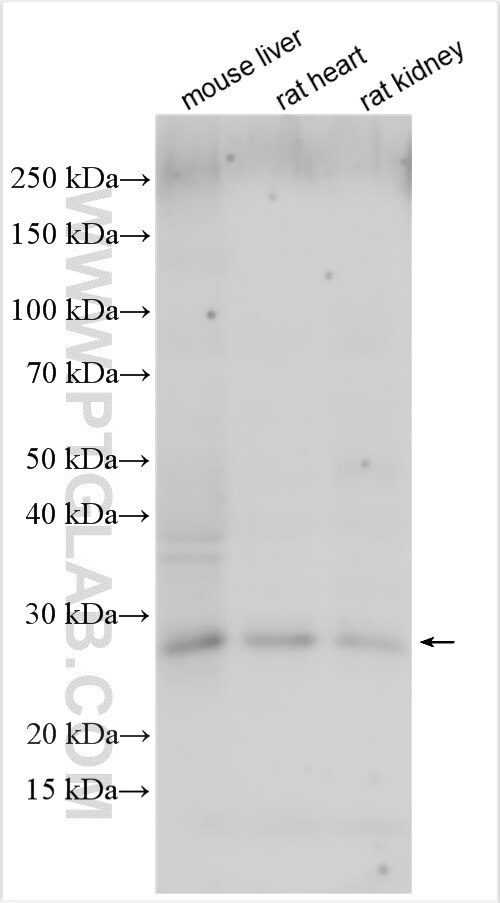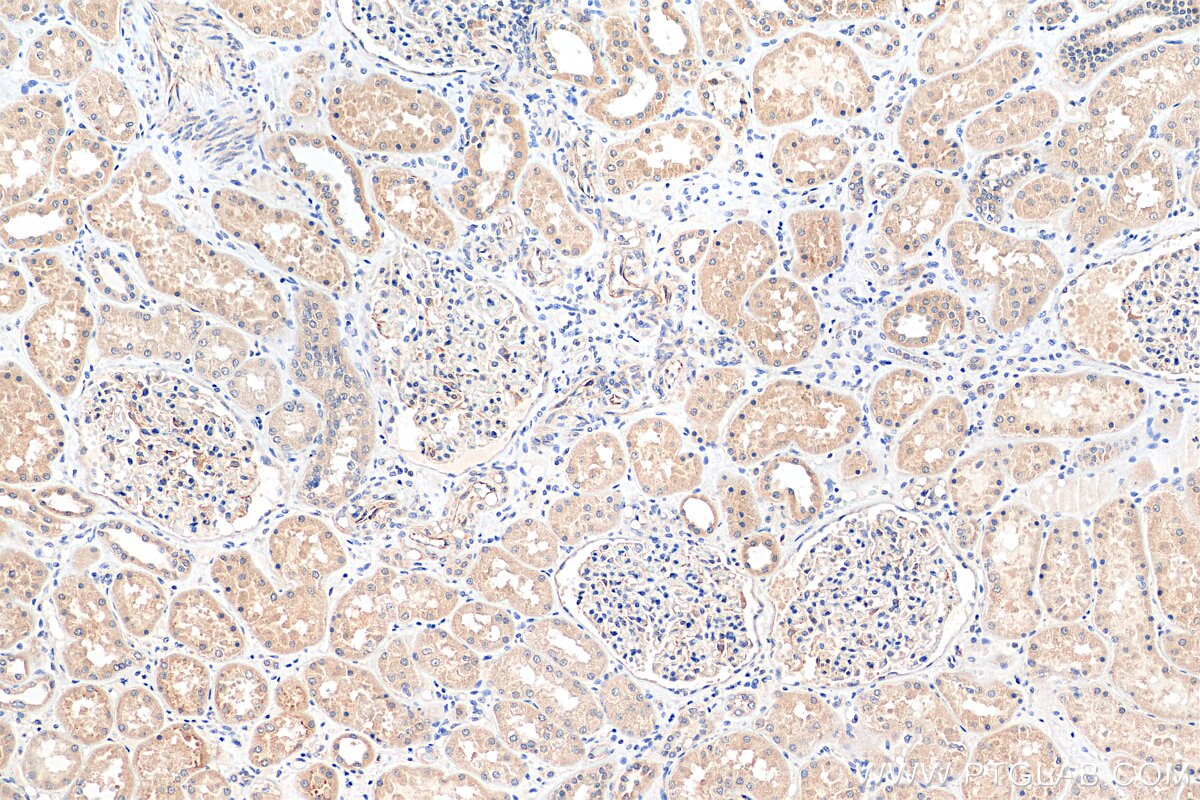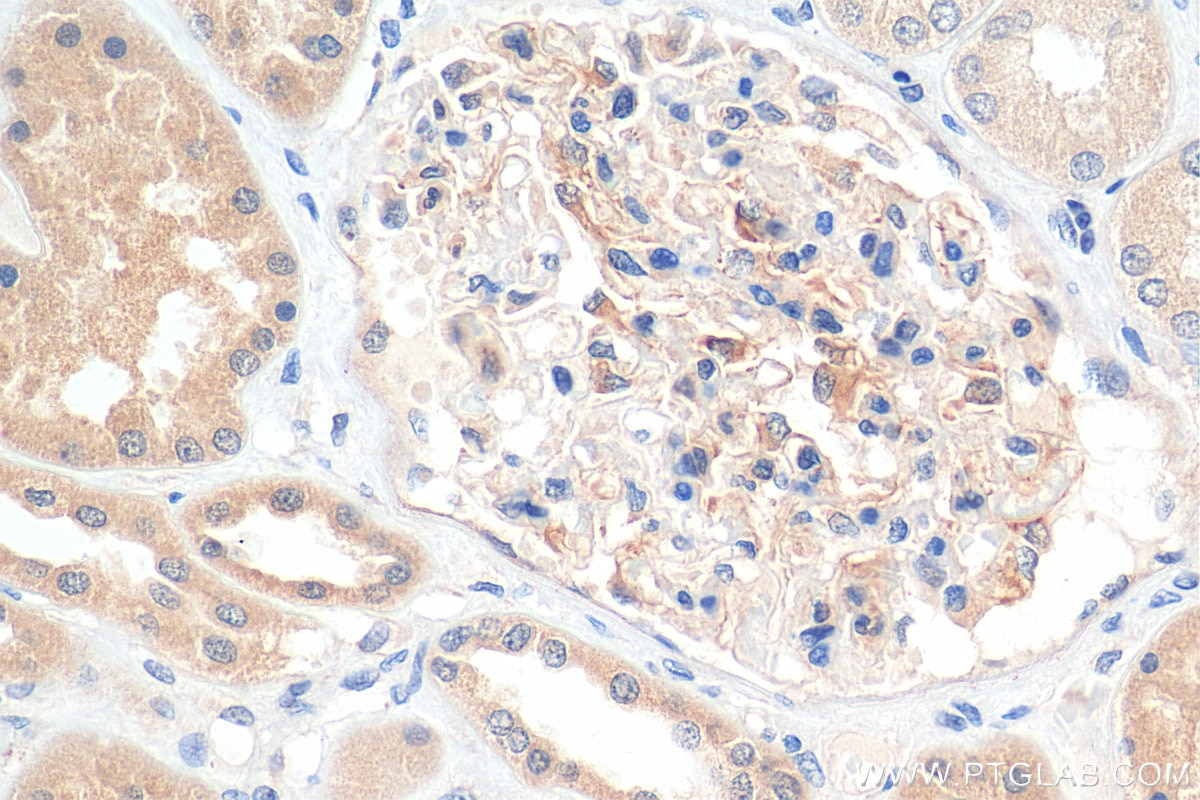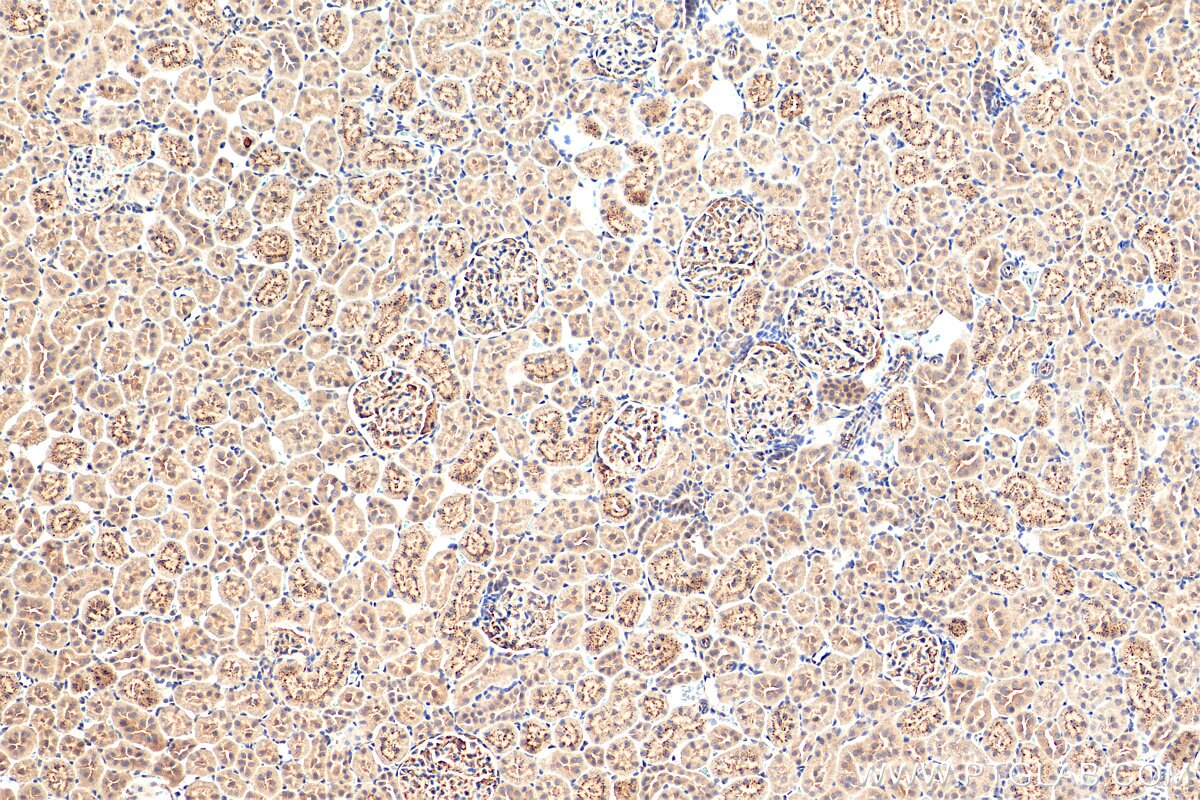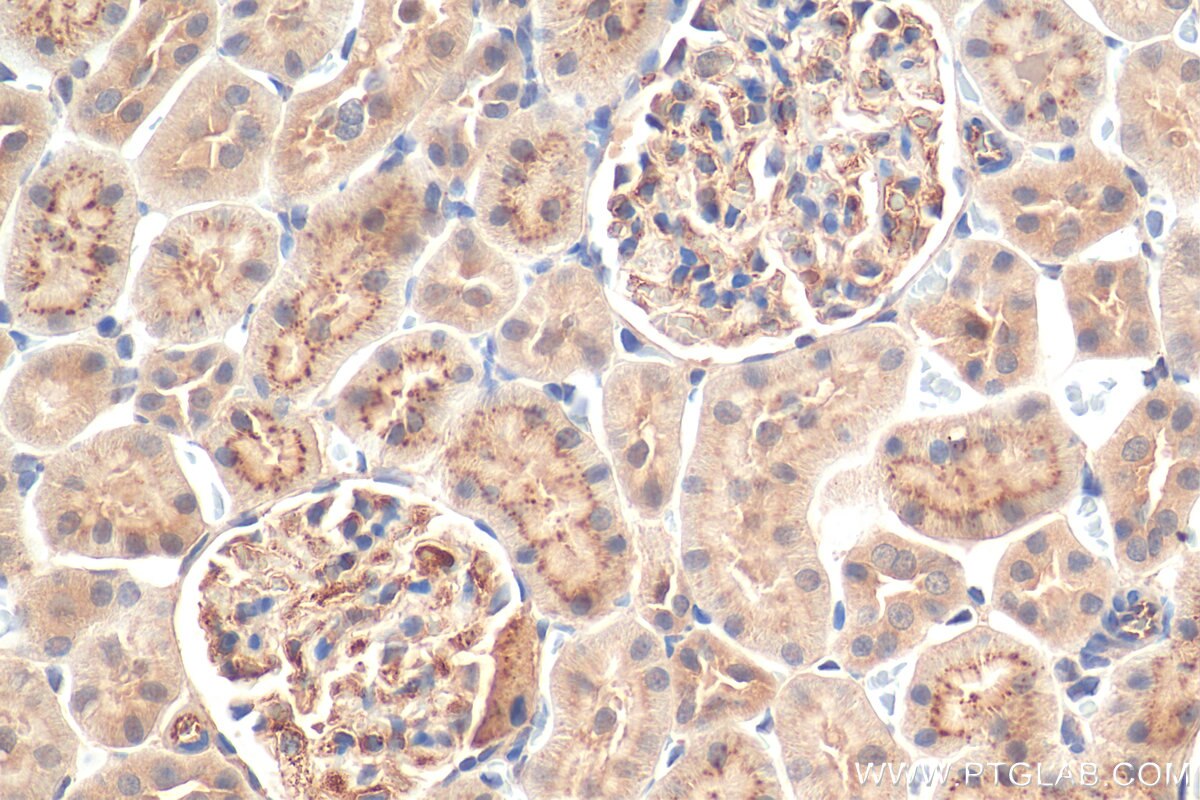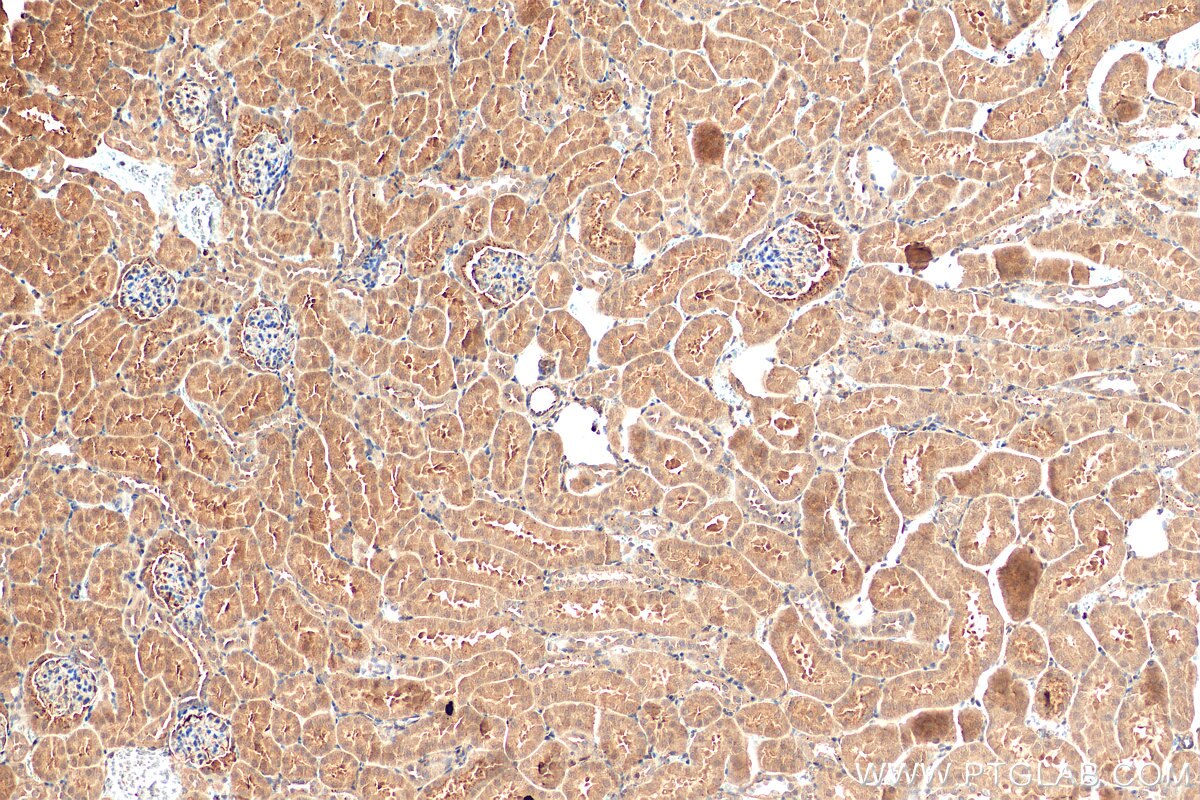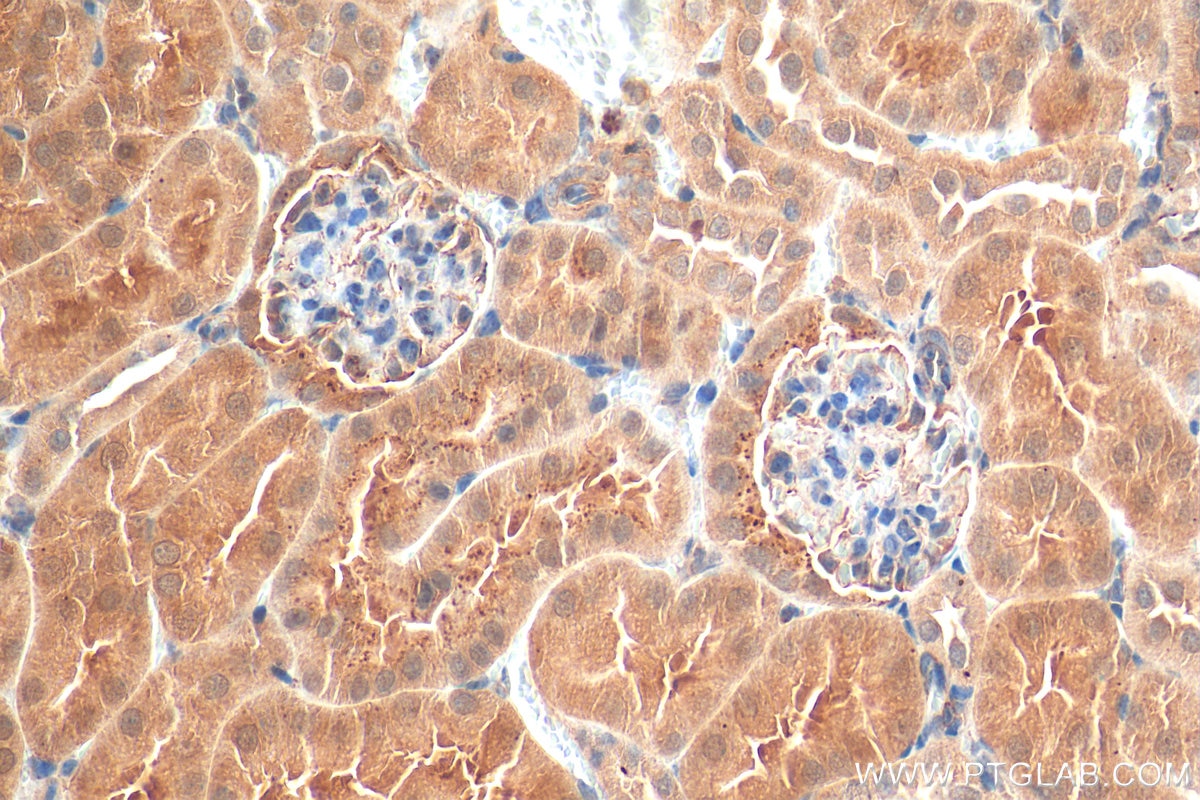Anticorps Polyclonal de lapin anti-Angptl4
Angptl4 Polyclonal Antibody for WB, IHC, ELISA
Hôte / Isotype
Lapin / IgG
Réactivité testée
Humain, rat, souris
Applications
WB, IHC, IF, ELISA
Conjugaison
Non conjugué
N° de cat : 51109-1-AP
Synonymes
Galerie de données de validation
Applications testées
| Résultats positifs en WB | tissu hépatique de souris, |
| Résultats positifs en IHC | tissu rénal humain, tissu rénal de rat, tissu rénal de souris il est suggéré de démasquer l'antigène avec un tampon de TE buffer pH 9.0; (*) À défaut, 'le démasquage de l'antigène peut être 'effectué avec un tampon citrate pH 6,0. |
Dilution recommandée
| Application | Dilution |
|---|---|
| Western Blot (WB) | WB : 1:500-1:1000 |
| Immunohistochimie (IHC) | IHC : 1:50-1:500 |
| It is recommended that this reagent should be titrated in each testing system to obtain optimal results. | |
| Sample-dependent, check data in validation data gallery | |
Applications publiées
| KD/KO | See 1 publications below |
| IF | See 1 publications below |
Informations sur le produit
51109-1-AP cible Angptl4 dans les applications de WB, IHC, IF, ELISA et montre une réactivité avec des échantillons Humain, rat, souris
| Réactivité | Humain, rat, souris |
| Réactivité citée | Humain, souris |
| Hôte / Isotype | Lapin / IgG |
| Clonalité | Polyclonal |
| Type | Anticorps |
| Immunogène | Angptl4 Protéine recombinante Ag0613 |
| Nom complet | angiopoietin-like 4 |
| Masse moléculaire calculée | 405 aa, 45 kDa |
| Numéro d’acquisition GenBank | BC078944 |
| Symbole du gène | Angptl4 |
| Identification du gène (NCBI) | 362850 |
| Conjugaison | Non conjugué |
| Forme | Liquide |
| Méthode de purification | Purification par affinité contre l'antigène |
| Tampon de stockage | PBS with 0.02% sodium azide and 50% glycerol |
| Conditions de stockage | Stocker à -20°C. Stable pendant un an après l'expédition. L'aliquotage n'est pas nécessaire pour le stockage à -20oC Les 20ul contiennent 0,1% de BSA. |
Informations générales
Angiopoietin-like protein 4 (ANGPTL4), a member of the angiopoietin-like protein subfamily, is a secretory protein that functions as an important modulator of glucose and lipid metabolism. ANGPTL4 inhibits lipoprotein lipase (LPL)-dependent lipolysis thereby limiting the uptake of free fatty acids. Overexpression of ANGPTL4 results in hypertriglyceridemia, while ANGPTL4 deficiency suppresses foam formation in macrophages and protects against atherosclerosis. ANGPTL4 may play a role in several cancers and it also has been shown to prevent the metastatic process by inhibiting vascular activity as well as tumor cell motility and invasiveness. Decreased expression of this protein has been associated with type 2 diabetes. ANGPTL4 has three functional domains: the signal peptide, the coiled-coil (N-terminal chain, CCD), and the fibrinogen-like (C-terminal chain, FLD) domains. ANGPTL4 is a glycosylated secreted protein (fANGPTL4, 45-65 kDa). fANGPTL is then rapidly post-translationally cleaved into an N-terminal coiled-coil domain (nANGPTL4, ~ 15 kDa) and a C-terminal fibrinogen-like domain (cANGPTL4, ~ 35 kDa)(PMID: 37300585 ).
Protocole
| Product Specific Protocols | |
|---|---|
| WB protocol for Angptl4 antibody 51109-1-AP | Download protocol |
| IHC protocol for Angptl4 antibody 51109-1-AP | Download protocol |
| Standard Protocols | |
|---|---|
| Click here to view our Standard Protocols |
